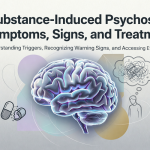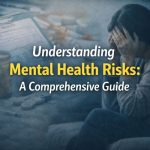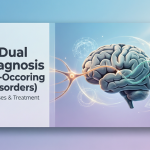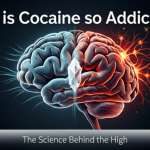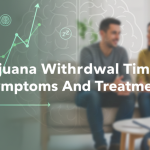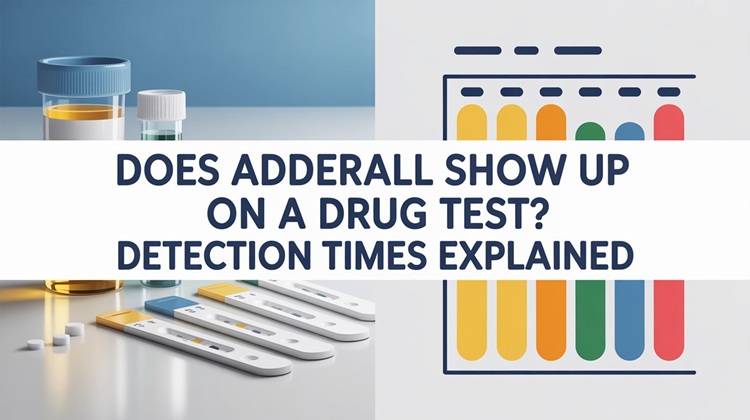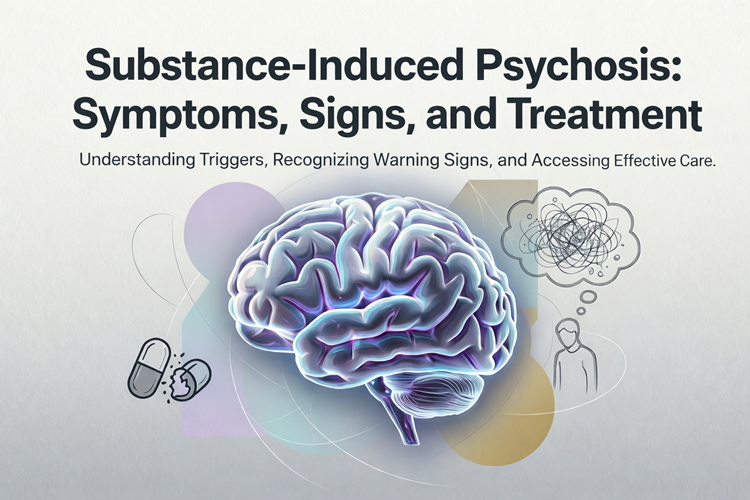In this Blog
- What ketamine is and how it’s used for anxiety relief.
- How ketamine works inside the brain to reduce anxiety symptoms.
- A comparison between ketamine and other anti-anxiety medications.
- Different ketamine treatment types are available today.
- Real-world effectiveness of ketamine therapy for various anxiety disorders.
- How to discuss ketamine therapy options with a qualified professional.
Anxiety disorders affect millions worldwide, leaving many trapped in constant worry, panic, and emotional distress. While therapy and medications help some, a significant number continue to struggle despite multiple treatments. Ketamine therapy has emerged as a groundbreaking option, offering rapid relief for anxiety, depression, and PTSD, often producing noticeable improvements within hours or days.
Administered under medical supervision through IV, nasal spray, or lozenges, ketamine promotes the growth of new neural connections, effectively “resetting” mood and emotional regulation. Although not a cure, when combined with therapy, it supports long-term recovery and is redefining how mental health professionals approach treatment-resistant anxiety and mood disorders.
What is ketamine?
Ketamine is a dissociative anesthetic that was initially approved by the FDA in 1970. In more recent times, it has been reused as an innovative therapy against mental disorders, particularly those that do not respond to conventional therapy, such as anxiety and depression. It acts in contrast to conventional drugs in that it targets the glutamate system of the brain, the NMDA receptor, and has the effect of restoring neural connections that are impaired due to chronic stress and anxiety.
Its application in the treatment process is well observed in a clinical environment, where the patients are provided either intravenous infusions, nasal sprays, or oral tablets under the care of the medical practitioners.
What is Ketamine Used For?
Although ketamine is used mostly in surgery and in treating pain, it is finding more and more use in:
- Generalized anxiety disorder (GAD)
- Social anxiety disorder (SAD)
- Obsessive-compulsive disorder (OCD).
- Post-traumatic stress disorder (PTSD).
- Major depressive disorder (MDD).
Ketamine can be used as an alternative to other methods of anxiety treatment since it induces a calming effect and enhances mood as well as cognitive flexibility, which makes it an effective option when used by people who otherwise do not respond to other treatment options.
100% Confidential Support is Available 24/7
No matter what you’re going through, you’re not alone. Our dedicated team is here to provide a safe, judgment-free space where you can talk openly and honestly. Whether you need emotional support, resources, or just someone to listen.
We’re here for you—completely confidential and always respectful of your privacy. Call us today!
How Does Ketamine Work?
Ketamine has the effect of acting on glutamate, the most common neurotransmitter in the brain, which is associated with learning and memory. It enhances the brain-derived neurotrophic factor (BDNF) activity that facilitates the development of new neural connections.
This will assist in resetting the stress response of the brain, enabling people to think more clearly, manage their feelings, and participate more in therapy.
In contrast to SSRIs (selective serotonin reuptake inhibitors), which primarily change serotonin levels, ketamine affects many processes at the same time, which makes it faster and more efficient in certain patients.
Ketamine vs. Other Medications
Feature | Ketamine Therapy | Traditional Medications |
Onset of Relief | Within hours to days | 4–6 weeks |
Mechanism | Acts on glutamate (NMDA receptor) | Acts on serotonin or GABA |
Effectiveness | Works for treatment-resistant anxiety and depression | Effective for mild to moderate anxiety |
Duration of Benefit | It can last from days to weeks after one session | Requires continuous use |
Addiction Risk | Low under supervision | Higher with long-term benzodiazepine use |
Side Effects | Mild dissociation, nausea | Drowsiness, dependence, emotional blunting |
Did You Know? – A 2022 Yale University study found 72% of participants experienced anxiety reduction after two ketamine sessions.
Ketamine Treatment Types
The ketamine treatment is in various forms depending on the needs of the patients and the level of medical supervision:
- IV Infusion Therapy: This is the most popular form, which is carried out in clinics, and the results are achieved quickly.
- Intranasal (Spravato): A Medical-approved nasal spray, administered as a type of depression and anxiety treatment.
- Orally: Pills or Lozenges: prescribed as home maintenance therapy.
- Intramuscular Injections: Intramuscular injections are used in cases of people who have higher or quicker-acting doses.
All types of treatment are selected according to the symptoms of the patient, his/her response history, and the prescribed treatment by the doctor.
Effectiveness of Ketamine for Anxiety
There is a lot of research and clinical reports on ketamine that attest to the fact that it can alleviate anxiety within a short period and successfully. It helps especially those people who have not been responding well to the traditional medications.
How Effective Is It?
- Fear of Constant Worry and Social Anxiety: Ketamine can be used to eliminate worry and social fear regularly and stabilize mood, as well as increase confidence.
- Phobias: It aids the brain to relearn the reactions of fear, hence exposure therapy becomes more efficient.
- Obsessive-Compulsive Disorder (OCD): It reduces the intrusive thoughts by balancing overstimulated brain activity.
According to a study released by the National Institute of Mental Health (NIMH) in 2023, participants who were treated with ketamine therapy claimed that they had reduced the symptoms of anxiety by 60% in the first month of treatment.
Begin your healing journey with DeLand Treatment Solutions — Call (386) 866-8689 today.
Side Effects of Ketamine
Although ketamine therapy is generally safe with supervision, it has temporary side effects, including:
- Marginal dizziness or light-headedness.
- Nausea
- Temporary dissociation or out-of-body experiences.
- Fatigue after sessions
The effects normally disappear within an hour. Clinicians follow up on each patient closely so that they are comfortable and safe.

CALL US NOW
DeLand Treatment Solutions will iron out the details for you in a manner that will make you confident in your path to sobriety. That first simple call is your ticket to making DeLand Treatment Solutions your solution for addiction. Get the freedom from addiction that you deserve today.
How to Ask About Ketamine Therapy for Anxiety
You need to communicate with your healthcare provider freely in case you are thinking of ketamine therapy. Here’s how to approach it:
- Do your research: Find out more about the clinics around you that provide FDA-approved ketamine treatments.
- Treatment history discussion: Discuss what treatment you have done, and how it affected you.
- Inquire about protocols: Make questions about the frequency of treatment, monitoring, and the anticipated results.
- Assess support options: Better outcomes can be achieved by combining ketamine therapy and counseling or cognitive-behavioral therapy (CBT).
Expert’s Advice:
“Ketamine works best as part of a comprehensive mental health plan, therapy plus medication.” — Dr. Steven Levine, Psychiatrist & Founder of Ketamine Clinics Los Angeles
Key Takeaways
- The effect of ketamine is fast and it is associated with restoring brain connections and mood regulation.
- Good in case of anxiety and depression that is resistant to treatment, and OCD.
- Given as an infusion, nasal spray, or orally.
- Safer and works faster than the conventional anti-anxiety drugs.
- The side effects are insignificant and temporary when used under medical prescriptions.
- Ketamine therapy should not commence without consulting a certified provider.
Call DeLand Treatment Solutions at (386) 866-8689 to explore personalized ketamine therapy options.
FAQs About Ketamine
What is Ketamine, and why is it used for anxiety?
Ketamine is an anesthetic which is known to regulate the glutamate levels in the brain in order to promote less anxiety. It is also useful with cases that are resistant to treatment, whereby patients will be made to feel calmer and more emotionally stable within hours of treatment.
Is Ketamine FDA-approved specifically for anxiety treatment?
Although ketamine is approved to be used as an anesthetic by the FDA, it is also approved to treat depression in its nasal spray form (Spravato). The application of the drug as an antipanic is typical and has extensive clinical backing under licensed care.
How is Ketamine administered for anxiety?
Ketamine is used IV as an infusion, nasal spray or in an oral lozenge or as an injection. The sessions will take place in a medical environment and last 40-60 minutes with strict supervision that will guarantee safety and the best outcomes.
How quickly can I expect to feel relief from anxiety with Ketamine treatment?
Patients can experience fewer symptoms of anxiety in hours to a few days following the initial session. Certain ones need several treatments to remain stable long-term and have better mood control.
What are the common side effects of Ketamine for anxiety?
It may cause temporary dizziness, nausea, or weak dissociation. All these effects are short-lived. The clinics keep the patients under observation to make sure that they are comfortable and experience minimum discomfort when receiving or post-session.
Is there a risk of addiction with Ketamine treatment for anxiety?
In this case, there is minimal risk of addiction when the drug is used under medical care. The dosages are regulated and safe and therapeutic results are achieved without dependency and abuse through psychological follow up.
How long do the anti-anxiety effects of Ketamine typically last, and will I need continuous treatment
The relief can be several days or weeks. Maintenance once every few weeks or months assists in maintaining long-term benefits, which are dependent on the condition and response of the individual.
References:
- Yale University School of Medicine – Ketamine for Anxiety Disorders (2022)
- National Institute of Mental Health (NIMH) – Rapid-Acting Treatments for Anxiety (2023)
- Wiley / Depression and Anxiety journal — Efficacy of intravenous ketamine treatment in anxious patients
- National Library of Medicine – Efficacy of Ketamine in Anxiety Treatment (2022)







